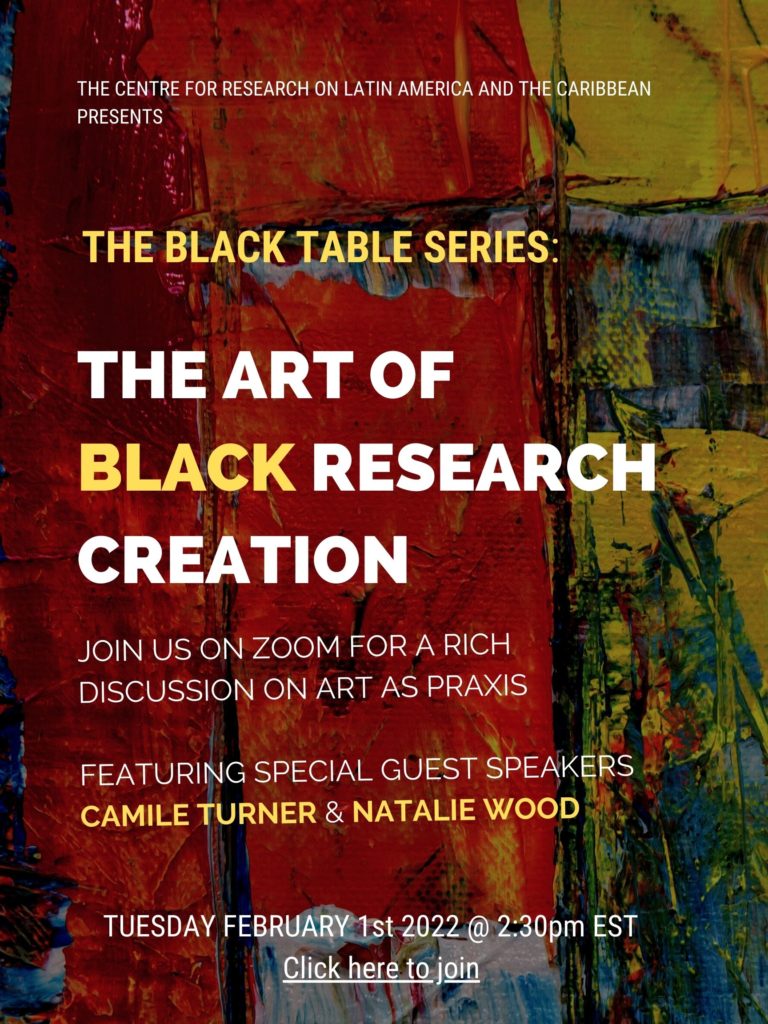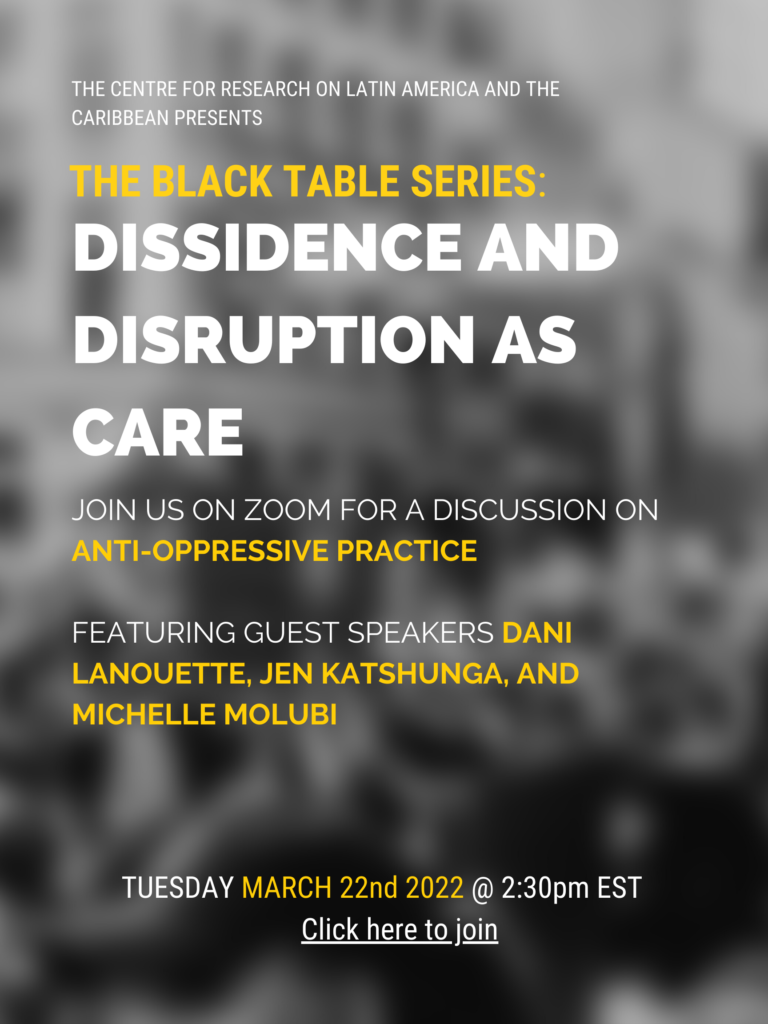
CERLAC is proud to announce the launch of a new program named Iyaric, an initiative seeking to support the student community by enhancing knowledge mobilization networks, stimulating public intellectual debate, and developing student publications centered on Black, Indigenous, and Caribbean themes.
Iyaric, also known as Dread Talk, is the Rastafari language created in defiance of English as an imposed colonial language that facilitated the loss of African languages among enslaved Afro-Caribbeans. Rastas use Iyaric to assert their cultural, spiritual and linguistic liberation from histories and institutions of oppression.
By pairing the anti-colonial logics and methods of the Iyaric language with student need for community and knowledge building opportunities, this program will develop monthly events in conjunction with a student publication to give CERLAC students the chance to enhance their networks and support their professional development.
Iyaric Initiative Publication: Issue 2 - Caribbean Studies in Canada, Today
IYARIC is a student-run journal, published by York University’s Centre for Research on Latin America and the Caribbean. It emerged as a response to the need for increased platforms for Black and Indigenous student voices. Read about Iyaric and access the inaugural issue here: https://www.yorku.ca/cerlac/lyaric-initiative/
Our second issue calls for contributions that critically engage with the state and space of Caribbean Studies in Canada, in the current moment. In the context of increasing divestment and disinvestment in Caribbean Studies programs/centres as well as the necessary (political and epistemological) growth of and institutional investments in Black Canadian Studies as a discipline, the current juncture invites us to probe and consider the contemporary question of graduate Caribbean Studies “as a conceptual, ideological, political, and moral question” (Scott, 2013). We propose that we find ourselves in a moment to productively ask what is “Caribbean Studies” in the present and what can “Caribbean Studies” tell us about the question of the present?
We are seeking Black, Indigenous, and Caribbean centred academic and creative work from students and recent alumni that aligns with the theme of “Caribbean Studies in Canada, Today.” Invited are academic papers, personal reflections, editorials, opinion pieces, creative writing, photo essays, drawings, artwork, and other works that explore these questions. We encourage works that push boundaries and take risks as we are hoping to create an inclusive platform that elevates radical Black, Indigenous, and Caribbean voices.
Submission Guidelines
DEADLINE: December 13, 2023
Contributors are invited to submit original, unpublished work. Academic papers should be limited to between 1000 and 2500 words. Other written submissions should be limited to 1000 words. If you use citations, please follow the current MLA bibliographic format. A short (50-word) abstract and a brief biographical note should accompany each submission. If possible, please submit graphics or photographs to accompany your written submission.
Submissions should be uploaded here: https://forms.gle/adCLw18WKvERmN776
Email the editors indicating your intention to submit your work or with any questions: Tka Pinnock and/or Collin Xia at email.
IYARIC Publication:
To access all issues click here.
IYARIC: Disruption and Surveillance. September 2022. Issue 1.
IYARIC: Caribbean Studies Today. September 2024. Issue 2.
The Black Table Series:
CERLAC’s new Iyaric initiative is excited to launch its inaugural event, a speaker series called The Black Table. Professor David Trotman, whose contributions to CERLAC have been invaluable inspired the name of this series with his talk “Reflections on the Past and Conversations on the Future” at CERLAC in 2021. He discussed Black Histories at York University, student struggles and their connections to community and regional activism. He described how Black students gathered together informally on campus at a cafeteria table called “The Black Table” to examine the racism they faced at York and to build community.
In honour of their work, The Black Table series presents its first event called “The Art of Black Research-Creation.” Black artist-researchers have been invited to speak with CERLAC members on the (im)possibilities of Blackness and arts-based research in the academy and beyond. To kick start Black History Month the incredible Camille Turner and Natalie Wood for a conversation on Black journeys in the arts/academia and considerations on art as praxis in Black world-making.


